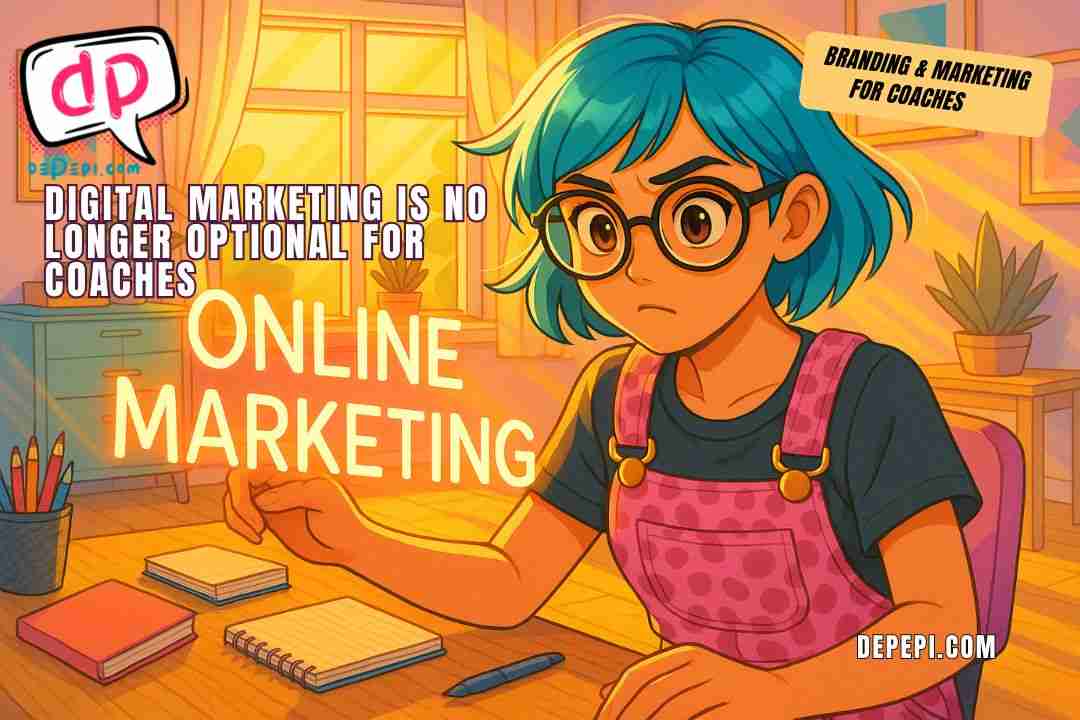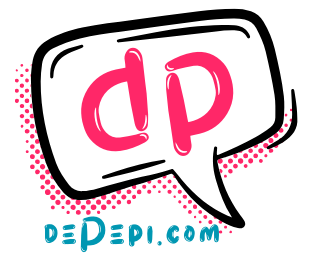Digital Marketing Is No Longer Optional (Essential Digital Marketing for Coaches)

Talent alone isn’t enough today. You can be a brilliant life coach, a skilled wellness mentor, or an experienced leadership advisor, but if your ideal clients can’t find you, connect with you, or even know you exist, your business will struggle to grow. That’s why you need to know essential digital marketing as a minimum. Yes, digital marketing is no longer optional anymore.
The coaches who thrive today are not just those who can deliver transformation. They know how to translate that transformation into a digital presence that’s impossible to ignore.
It’s no longer a question of “Should I invest in digital marketing?” but rather “How can I create a strategy that amplifies my voice, reaches the right people, and builds trust before they ever speak to me?”
This is where personal branding, SEO, and multi-channel engagement come in; not as “nice-to-have extras,” but as the essential foundation for long-term success.
Digital Marketing Is the New Coaching Baseline
Let’s touch the itchy spot first:
Coaches who ignore digital marketing risk becoming invisible even if their coaching skills are world-class.
Word-of-mouth referrals, networking events, and local reputation still matter, but they can’t be your only growth engines. They’re unpredictable and limited by geography and the size of your existing network.
Meanwhile, coaches who embrace a digital-first mindset (even those with less experience) are growing faster and charging more because they’ve mastered visibility. They’re using online platforms to showcase their expertise, build communities, and maintain a steady flow of potential clients.
The reason? Digital marketing allows you to:
Be present where your ideal clients already spend their time.
Control your message and position yourself with precision.
Build credibility before a single consultation is booked.
Create scalable systems for lead generation and relationship-building.
This isn’t about becoming a full-time marketer instead of a coach, though. It’s about aligning your marketing with your coaching philosophy so it feels natural and sustainable.
Your Website IS The Home Base of Your Coaching Business
Think of your website as your digital headquarters. Everything you do online, from social media posts to guest articles to podcasts, should point back here. It’s the one place you fully control, unlike rented space on platforms like LinkedIn or Instagram.
A strong coaching website does far more than list your services. It should reflect your personality, values, and approach so visitors can instantly feel what it might be like to work with you.
How to make it work for you:
Show your personal voice. Many coaching websites fall into the trap of generic “business-speak.” You’re not writing a corporate report! You’re speaking directly to humans. Use words, tone, and examples that mirror your coaching style. If you’re warm and encouraging in sessions, your copy should feel the same.
Lead with clarity. Within seconds of arriving, visitors should know who you help, what problems you solve, and what results you deliver. Your headline isn’t just decoration; it’s your chance to hook the exact person you want to serve.
Guide them with intention. A clear navigation menu and prominent calls-to-action (CTAs) help potential clients take the next step: whether that’s booking a discovery call, downloading a free resource, or subscribing to your newsletter.
Capture leads. Not everyone is ready to invest right away. Give them an easy way to stay in your world, such as an email sign-up tied to a valuable lead magnet.
For example, a career coach’s homepage opens with “Helping ambitious women in tech land their next leadership role without burning out.” Right away, the visitor knows exactly who she works with and what transformation she offers. Add in a free PDF called “The 7 Interview Mistakes Tech Leaders Make” as the lead magnet, and you have a natural pathway from casual visitor to warm lead.
SEO: HELP PEOPLE FIND YOU
Search Engine Optimization (SEO) can seem like a world of mysterious algorithms, but at its core, it’s simply about helping the right people find you when they’re actively searching for help.
For coaches, SEO works best when it’s laser-focused on niche keywords. Competing for broad terms like “life coach” or “business coach” is a losing battle without enormous resources. Instead, target specific, intent-rich phrases your ideal client would actually type into Google.
Think:
“Mindset coach for female entrepreneurs in London”
“Wellness coach for remote workers”
“Executive coach for first-time CEOs”
When you know these phrases, you can:
Naturally weave them into your website copy and blog posts.
Write articles that answer specific client questions.
Optimize your meta descriptions and headings so search engines (and humans) know exactly what you do.
SEO isn’t an overnight game, but a long-term asset. A single well-optimized blog post can keep attracting new visitors for months or even years, without extra effort once it’s live.
Multi-Channel Social Engagement
Your website and SEO bring people in. Social media is how you go out into the world and meet your audience where they are.
Many people get overwhelmed, thinking they need to post everywhere, every day. The truth? You need to be strategic.
Pick one or two platforms where your audience is most active, and commit to showing up there consistently.
LinkedIn is ideal for professional audiences, executive coaching, career transitions, or any niche that overlaps with work life.
Instagram works well for lifestyle, wellness, and creative niches where visual storytelling matters.
YouTube or podcasts help build authority through deeper, more educational content, and they pair beautifully with SEO.
The goal isn’t just to “be active.” It’s about engaging: commenting thoughtfully on posts, joining conversations, and sharing insights that demonstrate your expertise. When your audience sees you as a consistent, valuable voice, they’ll remember you when they’re ready to invest.
Content Marketing TO Build Authority and Trust
If your website is the home base and social media is your networking space, content marketing is your stage. It’s where you demonstrate expertise, share your philosophy, and prove you can get results, all before someone works with you.
Strong content does three things:
Educates: providing your audience with quick wins they can implement immediately.
Inspires: sharing stories and mindset shifts that show what’s possible.
Connects: letting people see your values, your story, and even your quirks.
For example:
A leadership coach might share a carousel on LinkedIn: “3 Questions to Ask Yourself Before Accepting a Promotion.”
A wellness coach could post a 2-minute video on Instagram about “desk stretches that fight fatigue.”
Over time, your content library becomes proof of your expertise. New followers can read everything in one go, just like a Netflix series, which helps build trust quickly.
Email Marketing: Your Private Channel to Potential Clients
Social media is great for reach, but you’re always at the mercy of algorithms. Email marketing gives you a direct line to people who have already shown interest in your work.
When someone joins your list, usually by downloading a free resource or signing up for a challenge, they’ve taken a step toward working with you.
Use email to:
Share tips, insights, and resources.
Tell stories that show your coaching in action.
Invite readers to events, programs, or calls.
The beauty of email is intimacy. It’s where you can be a little more personal, a little more in-depth, and build a relationship that leads naturally to coaching conversations.
Your Digital Marketing Mindset
To make this sustainable, you need to think about marketing like this:
Marketing is not separate from your coaching. It’s part of the transformation you offer.
Basically…
- When you write a blog post answering a client’s common question, you’re coaching.
- When you post an insight that inspires someone to take action, you’re coaching.
- When you create a lead magnet that solves a small problem, you’re coaching.
Seeing it this way turns marketing from a chore into an extension of your craft.
The Bottom Line?
In 2025, the coaching industry will only get more competitive. The difference between coaches who stay stuck and those who thrive isn’t talent: it’s visibility.
Building a distinct online presence doesn’t mean being everywhere, all the time. It means showing up in the right places, with the right message, for the right people, and doing it consistently enough to be remembered.
Need Help?
Join Branding and Marketing for Coaches and up your game online to win. Or, if you just want the basics, get my marketing framework that I use with all my clients here. Set yourself up to win online.






